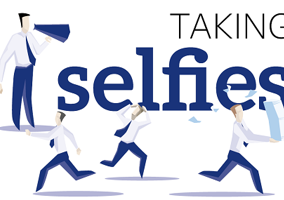Kate Massarella from Bird – an organisation founded by Hannah Massarella that promotes and facilitates self-care and wellbeing in the charity sector – talks to prominent charity leaders about how, as the focus on mental health and wellbeing grows, they use practical approaches to tackle issues in the workplace.
People in not-for-profit organisations can often be faced with emotionally challenging situations. This can include dealing with long-term illness and bereavement at charities such as Beating Bowel Cancer, supporting people who have been through trauma at The Refugee Council, or tackling social justice issues at Touchstone.
As a result, directors and managers face a range of challenges around the mental health and wellbeing of their teams. "[Wellbeing in the workplace] is of particular relevance to an organisation that’s stock and trade is talking to people who’ve experienced the most unthinkable and unspeakable acts. Either personally or have witnessed them," explains Maurice Wren, chief executive of The Refugee Council. "How do we look after our staff in order that they’re well set to help these people and look after them?"
In response to these challenges, not-for-profit organisations are incorporating an increasingly diverse range of innovative solutions into the workplace.
Providing professional support
A number of organisations provide professional support services to staff. This includes specialist and confidential support for staff members such as counselling services, one to one coaching and mentors.
One important function of these services is to support staff members during particularly stressful events. To this end, Beating Bowel Cancer brought in an employee assistance line "partly because we deal with bereavement," explains Mark Flannagan, who at the time of speaking was the charity's chief executive, "we lose patients and people feel that feeling." And team members have been vocal about the personal benefits they have experienced from having this support.
The value of having services that provide support at critical times is clear, however organisations are also widening their offering to provide ongoing staff support. "We have a wellbeing programme", says Philip Goodwin, chief executive of VSO. "We’ve contracted out to a company who do all our wellbeing stuff…That’s across the whole range so that’s personal, workplace, home, legal, financial all of those things."
Additional support is also provided via online portals, such as website that contain a range of information on wellbeing and self-care, as well as forums and discussion pages.
Training and classes
Not-for-profit organisations are also investing in training programmes that aim to support individuals to self-care. This includes classes such as yoga, mindfulness and meditation for all team members, which have had a positive impact on individuals and the wider organisational culture. Such classes are sometimes run at a local scale on a weekly basis, but some organisations are taking this to the next level.
"We put all our managers – almost 50 people – through an eight week programme that included a three day two night residential," explains Lesley Dixon, chief executive of PSS, "and we got really good feedback."
The aim of such training is two-fold: helping individuals to self-care and improve their own wellbeing, while empowering them to support one another. "A lot of [wellbeing work] is [done] by line managers, or peers, who actually help people to say what’s expected here and how you might do it and how you might reflect on it," says Goodwin.
Events and celebrations
Staff wellbeing can also be given a boost by organising events that celebrate successes, increase morale and improve relationships. At PSS they have an annual awards ceremony just before Christmas. "We call them the big awards," explains Dixon. "There was an award winner for each of [our organisational] values and there was a team of the year and everyone won the award."
Such events can also have a strong wellbeing theme. "[We have] health and wellbeing days," describes Alison Lowe, chief executive of Touchstone, "for example we got someone in who took people’s blood pressure and heart monitor and weighed them etc, so everyone could come from the whole organisation all day."
As well as large, one-off events such as this, some directors try to bring staff members together on a more regular basis. "We’ll try and do things like get off campus and have strategic planning retreats," explains Lina Abirafeh, director of the Institute for Women's Studies in the Arab World at the Lebanese American University. "We do team dinners when we can, stuff that just keeps everybody connected and sane - and also keeps the lines of communication open."
Putting wellbeing at the heart of organisational practice
In addition to providing support and training, and doing a wide range of events and activities, progressive not-for-profit organisations are trying to incorporate and mainstream wellbeing into broader organisational structures.
"The first step is to record absence properly," explains David Prince. people director at the MS Society, "that helps you identify things like work-based stress." This then enables managers to build wellbeing into the workplace and incorporate it into business planning processes.
For some organisations, wellbeing concerns extend to fundamental business decision, such as hiring staff. "Staff look after each other because we recruited to a style and culture of caring and empathy", explains Flannagan.
Autonomy and flexibility
"A big issue in health and wellbeing is having autonomy in your work and not feeling controlled and not feeling that you haven’t got authority to make decisions," explains Lowe. As such, not-for-profit organisations are embracing flexible working for staff. "We don’t have a 9-5.30 culture," says Mark Flannagan, "there’s much more flexible working, basically treating people like grown-ups."
The benefits of this approach are clear and include increased levels of long-term staff retention and giving people the space to reflect on what they are achieving and how they can improve. This flexibility extends beyond working hours and also involves tailoring job roles and HR support to individuals.
Treating people with respect and giving them autonomy can also have hugely positive impacts on staff wellbeing and performance. This involves pushing against micro-management and towards workplaces where people feel empowered to make decisions. The result is more creative, happy and productive staff.
"People feel free and autonomous and able to make decisions within their pay grade and beyond if they want to," says Lowe, "So it’s a whole culture thing."
From far-reaching organisational change to one-off events, all of these mechanisms require commitment by directors to put wellbeing at the heart of the organisation. But the results that are emerging are demonstrating that it is worth it.
This article is the third in a series developed as a result of in-depth interviews commissioned by Bird and conducted with leaders of not-for-profit organisations on the subjects of self-care, wellbeing and staff development. The articles bring together the key themes shared by these leading practitioners, offering insights into their perceptions and approaches and providing a valuable tool for those wanting to improve wellbeing in the not-for-profit sector.
Kate Massarella is an independent social researcher writing on behalf of Bird: an organisation that promotes and facilitates self-care and wellbeing in the charity sector, founded by Hannah Massarella.
Related articles












